When it comes to electricity, there’s no room for shortcuts. Professional electricians know better than anyone how dangerous wiring mistakes, overloading, or poor maintenance can be. While many homeowners experiment with DIY fixes or temporary solutions, electricians tend to avoid those risky practices altogether, especially in their own houses. Their habits are shaped by years of experience, safety training, and firsthand encounters with the consequences of electrical negligence. Here are seven things professional electricians would never do at home, and why you should avoid them too.
1. Overloading Outlets with Extension Cords
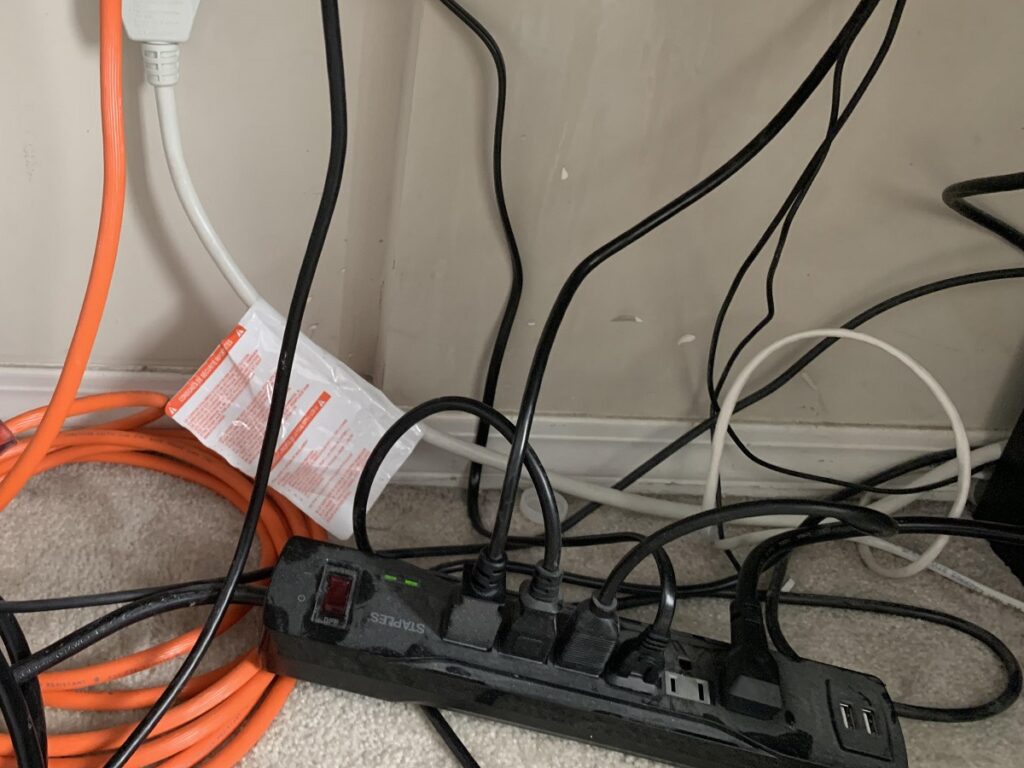
Even though plugging multiple devices into one outlet may seem harmless, electricians know the real risks. Outlets are designed to handle a limited electrical load, and using extension cords or multi-plug adapters to run appliances like heaters, refrigerators, or microwaves can push the circuit past its capacity. This increases the chance of overheating, melting wires, and potentially starting a fire. Instead, electricians ensure their homes have enough outlets for everyday needs. If more capacity is required, they install additional circuits rather than risk dangerous overloads.
2. Ignoring Old or Outdated Wiring
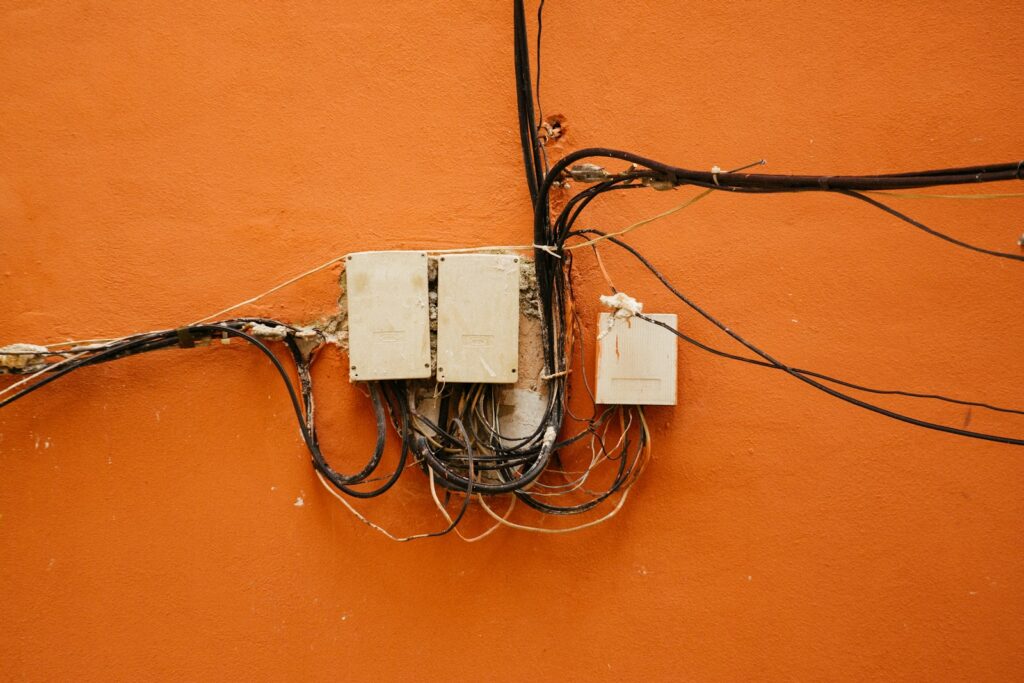
Many older homes, particularly those built before the 1970s, were designed with aluminum or knob-and-tube wiring that no longer meets modern safety standards. Electricians refuse to overlook such wiring in their own spaces because they understand how fragile and unsafe it can be. Old wiring often lacks grounding, deteriorates faster, and cannot safely handle today’s high electrical demands. Rather than patching over outdated systems, professionals make sure to replace old wiring entirely to avoid sparks, shocks, or potential electrical fires.
3. Ignoring Regular Maintenance
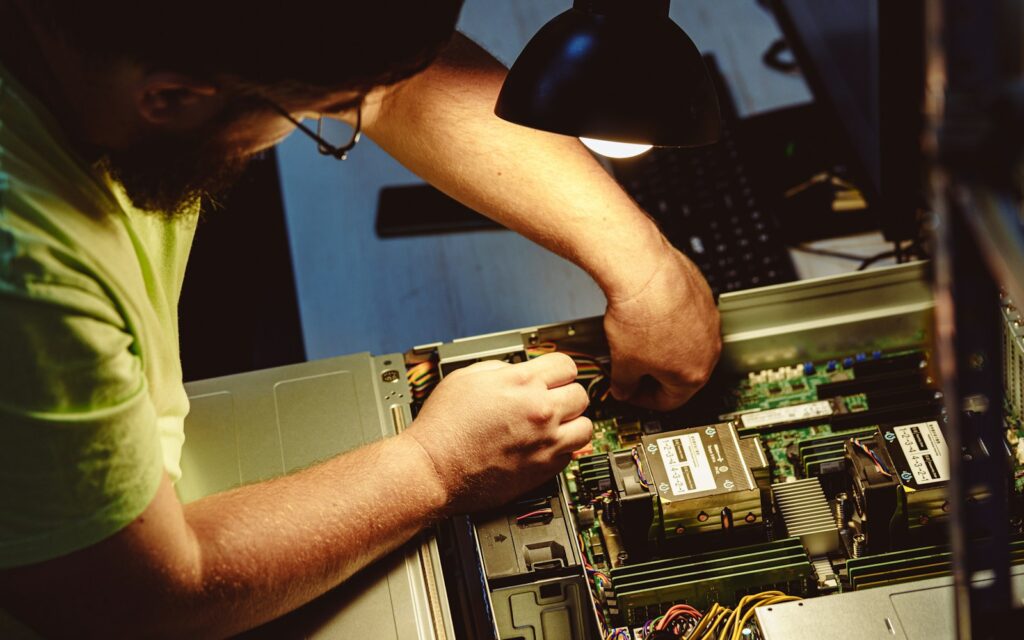
While many people only think about electricity when something goes wrong, electricians know that prevention is key. In their own homes, they perform regular maintenance, inspecting wiring, testing outlets, and checking breakers for wear. They also look for signs of overheating or buzzing sounds that signal deeper problems. By staying proactive, they avoid emergencies before they happen. For professionals, maintenance isn’t a chore; it’s a natural part of living safely with electricity.
4. Skipping Ground Fault Circuit Interrupters (GFCIs)
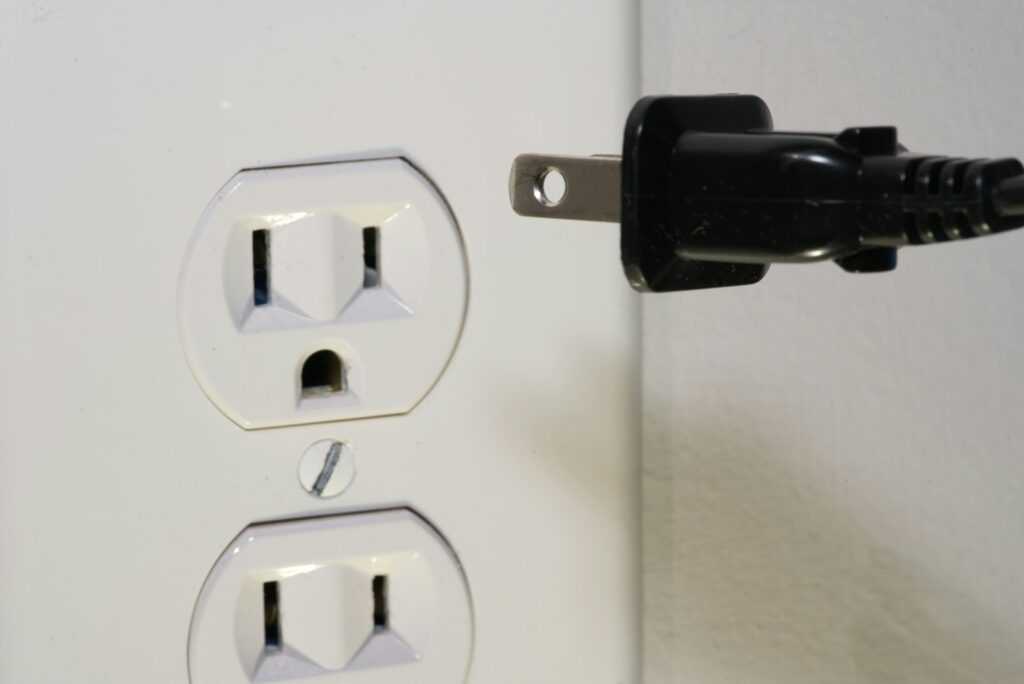
In areas like kitchens, bathrooms, garages, and outdoor spaces, electricians never rely on standard outlets. Instead, they always use GFCI outlets, which instantly shut off power if moisture or imbalance is detected. This protection is critical where water and electricity are close together. Homeowners may forget or ignore these codes, but professionals install them without exception. For electricians, having GFCIs in wet zones isn’t just code compliance; it’s an essential safeguard against shock and electrocution.
5. Leaving Exposed or Improperly Covered Wires
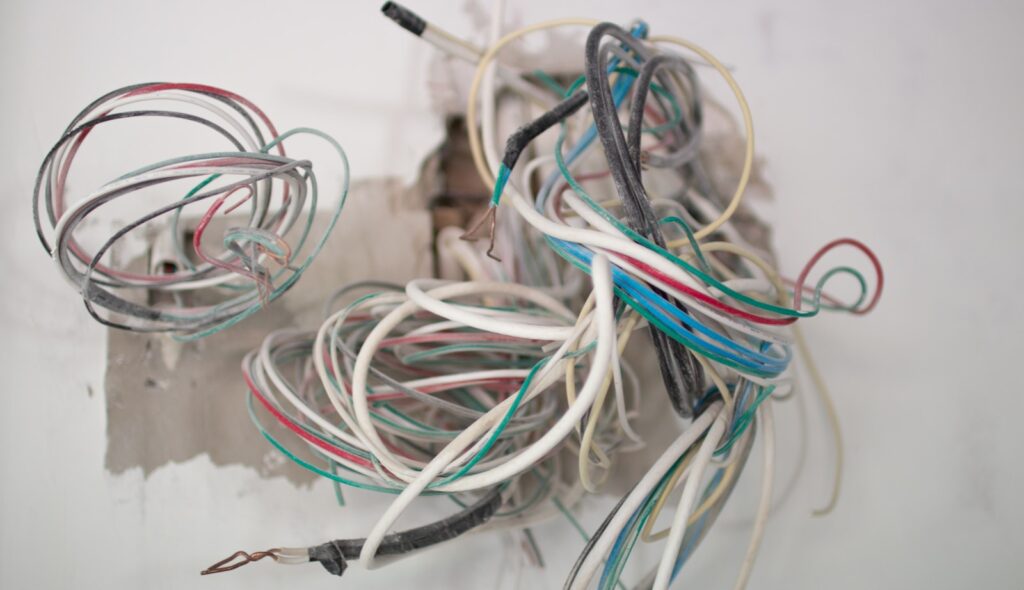
While some DIYers might leave splices covered with electrical tape or wires sticking out of an outlet box, electricians know that exposed wiring is both unsafe and non-compliant with code. In their homes, they always use proper junction boxes, covers, and connectors to ensure every connection is secure and shielded. Exposed wiring not only risks shocks but also increases fire hazards if it comes into contact with combustible materials. For electricians, taking shortcuts in wiring is never an option, especially where their families live.
6. Ignoring Surge Protection
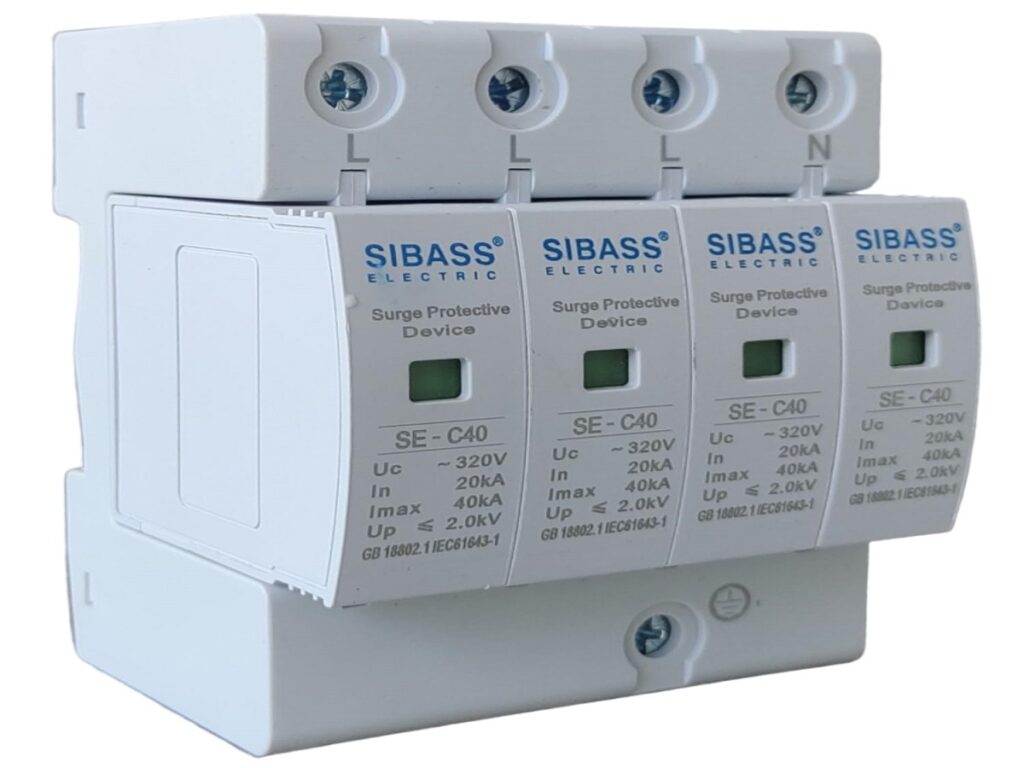
Lightning strikes and power surges can damage expensive electronics instantly. Many homeowners skip surge protection, but electricians make it a priority. They install whole-house surge protectors at the breaker panel and use outlet-level protection for sensitive devices. This prevents costly damage to computers, TVs, and appliances. For electricians, surge protection isn’t a luxury; it’s a standard layer of defense against unpredictable power fluctuations.
7. Using Bulbs with the Wrong Wattage
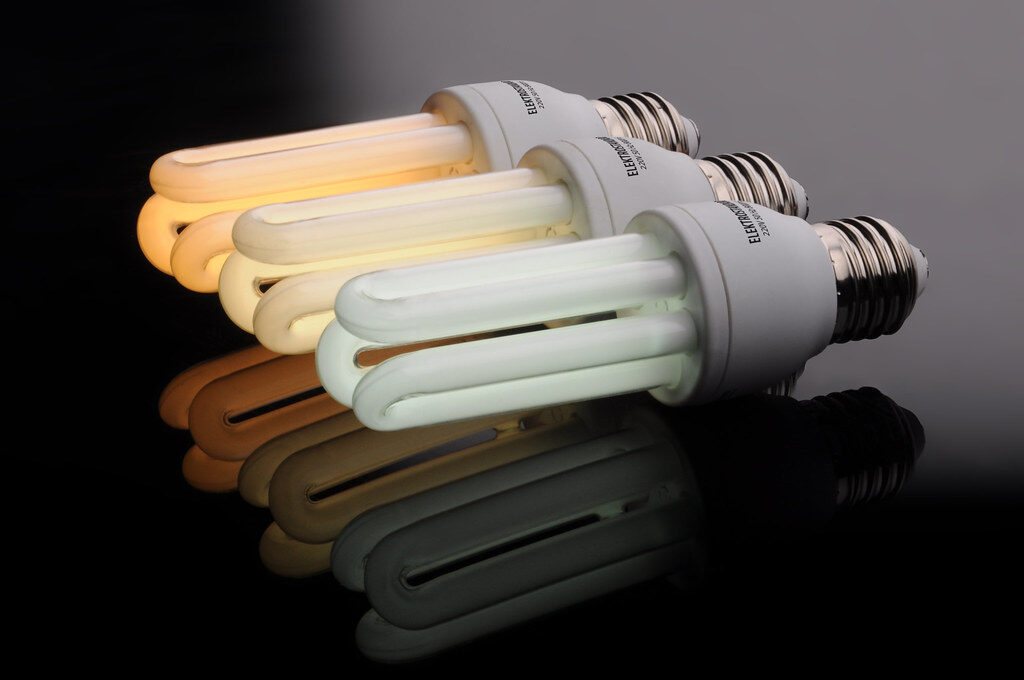
It’s a small detail that homeowners often ignore, but electricians know wattage ratings are there for a reason. Using a bulb with higher wattage than a fixture allows causes overheating, which can damage wiring or create a fire hazard. In their homes, electricians stick strictly to the rated wattage. They also prefer energy-efficient LED bulbs, which give the same light with lower heat output. This practice protects both fixtures and wiring while saving money in the long run.
Comments